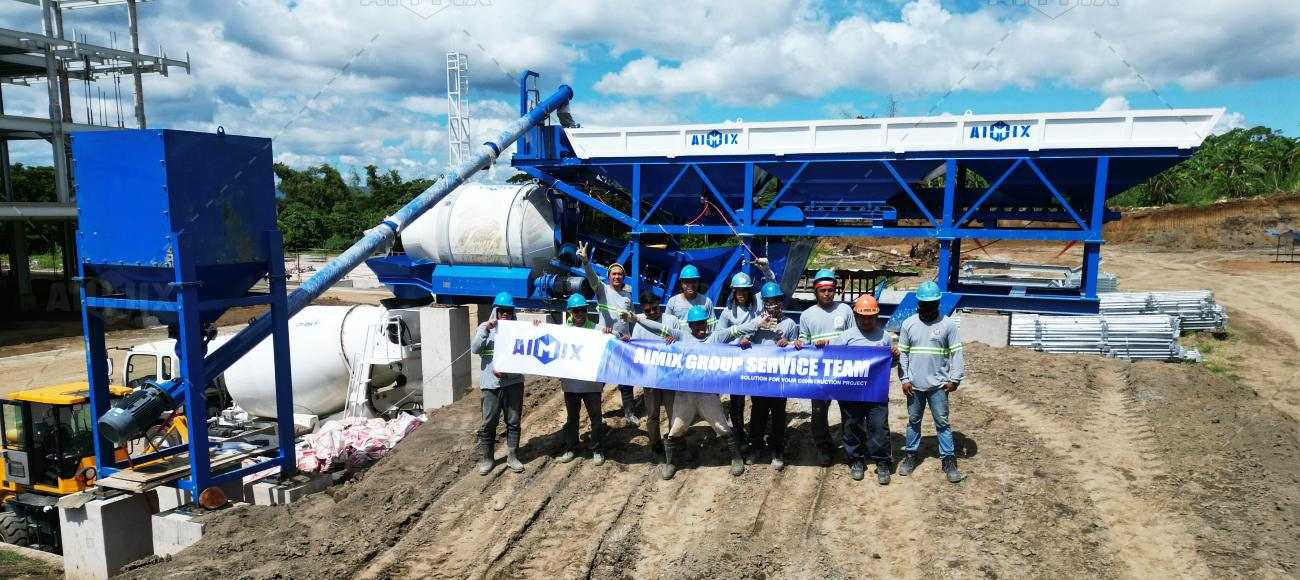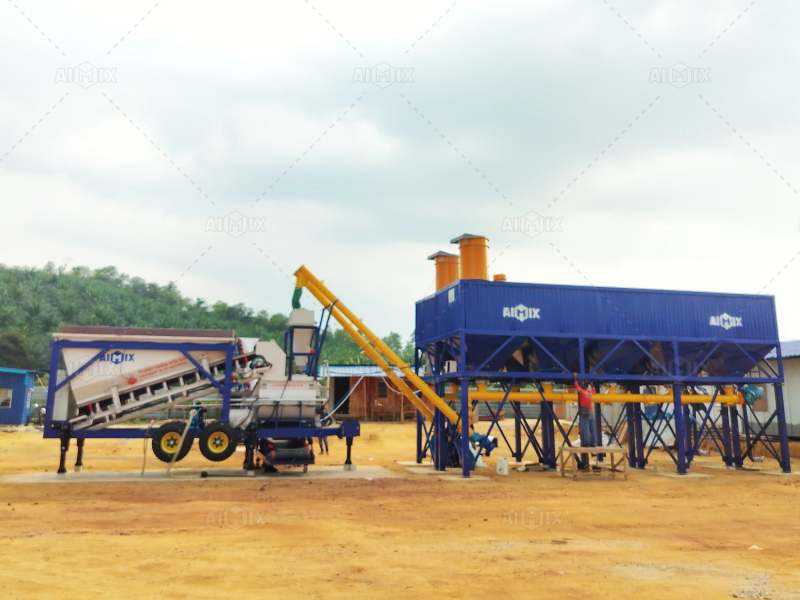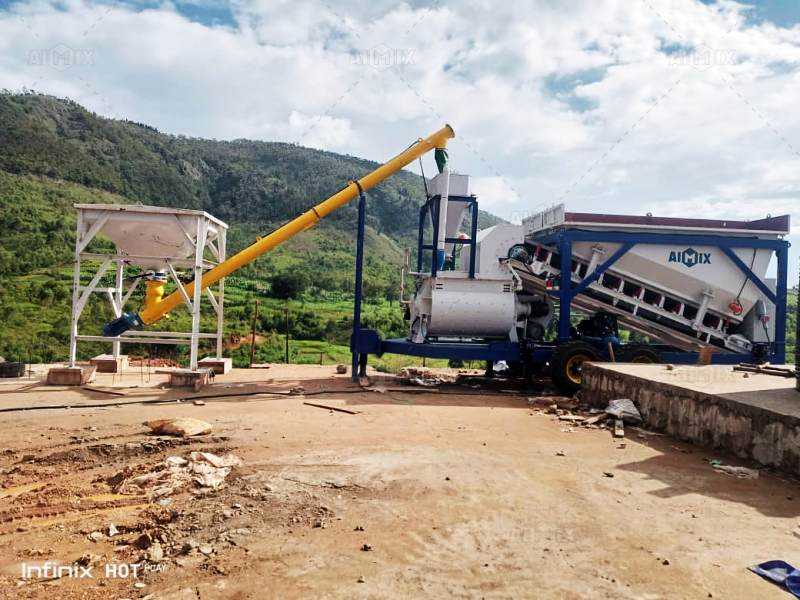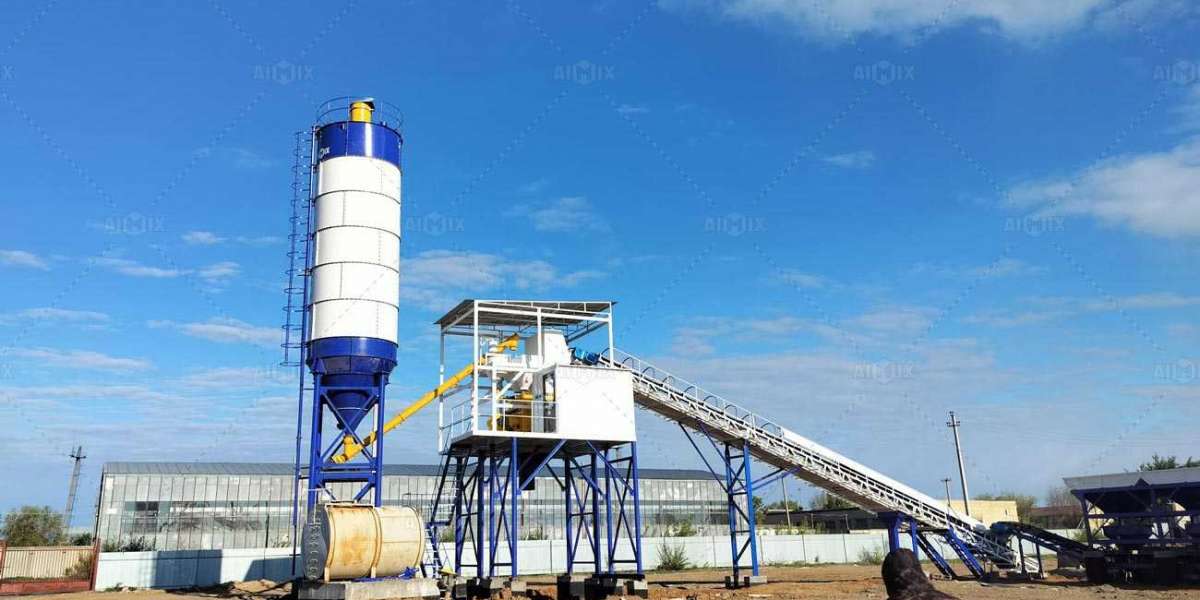Small batching plants play a crucial role in modern construction, providing flexibility, compact installation, and reliable concrete production. As construction projects increasingly prioritize cost reduction, environmental responsibility, and long-term efficiency, energy efficiency and sustainability in small batching plant design have become key considerations. Understanding these factors is essential for companies looking to invest in a batch mixing plant that minimizes operational costs while supporting eco-friendly practices.

Importance of Energy Efficiency in Small Batching Plants
Energy efficiency directly affects the running cost and environmental footprint of a small batching plant. Concrete production involves several energy-intensive processes, including:
Aggregate handling and transport
Mixing operations
Cement weighing and storage
Water management and heating (for special mixes)
Modern small batching plants are designed to reduce energy consumption through optimized motor selection, variable frequency drives (VFDs), and efficient conveyor systems. For example, high-efficiency mixers require less power per cubic meter of concrete produced, reducing overall electricity use. These energy-saving measures help project managers decrease operating expenses while maintaining high-quality output.
Sustainable Material Handling
Sustainability in a small batching plant begins with the careful handling of materials. Features that enhance sustainability include:
Automated weighing systems: Reduce material wastage by precisely measuring aggregates, cement, and water.
Aggregate recycling systems: Allow leftover concrete or washout water to be reused, minimizing raw material consumption.
Dust control systems: Bag filters, dust collectors, and enclosed conveyors reduce particulate emissions, protecting the environment and worker health.
By implementing these features, a batch mixing plant can operate more sustainably, meeting environmental regulations and improving project reputation.
Water Management and Reuse
Water is a key ingredient in concrete, and effective water management is essential for sustainability. Many modern small batching plants include water recycling systems that collect runoff from mixers, washout water, and rainwater to reduce freshwater consumption.
Recycled water can be used in cleaning operations or in subsequent mixes.
Water-efficient mixers reduce the volume of water lost during discharge and cleaning.
This not only conserves natural resources but also reduces costs associated with water supply and wastewater treatment.

Optimized Plant Layout and Space Utilization
Small batching plants are often chosen for projects with limited space. Energy efficiency and sustainability can be further improved through optimized plant layout:
Shorter conveyor distances reduce energy used in material transport.
Strategic placement of silos, mixers, and aggregate bins minimizes handling and operational delays.
Modular designs allow for incremental expansion, reducing the need for new construction or infrastructure.
Efficient layout and design help reduce both energy consumption and the overall environmental footprint of a batch mixing plant.
Incorporating Renewable Energy
An emerging trend in sustainable small batching plants is the integration of renewable energy sources:
Solar panels can provide electricity for control systems, lighting, or even auxiliary mixers.
Wind energy or hybrid power systems may supplement the plant’s energy needs in remote areas.
Battery storage allows plants to optimize energy use during peak and off-peak periods.
These measures reduce dependence on fossil fuels, lower operating costs, and contribute to greener construction practices.
Automation and Smart Controls
Automation plays a dual role in energy efficiency and sustainability. Advanced control systems allow operators to:
Monitor and adjust mixing times for optimal energy use
Control aggregate flow precisely to reduce wastage
Schedule equipment operation to avoid unnecessary idle power consumption
Smart controls also improve accuracy, ensuring that each batch meets quality specifications without overuse of raw materials or energy. A well-automated batch mixing plant delivers consistent results while supporting sustainable operations.
Maintenance and Lifecycle Sustainability
Regular maintenance enhances both energy efficiency and sustainability by ensuring that equipment operates at peak performance. Key considerations include:
Routine inspection and replacement of worn mixer blades to maintain mixing efficiency
Lubrication of motors and conveyors to minimize energy loss
Cleaning and servicing of dust collection and water recycling systems
Proper maintenance extends the lifecycle of a small batching plant, reduces downtime, and minimizes resource wastage. By planning maintenance strategically, plant operators can ensure sustainable and cost-effective operations.
Regulatory Compliance and Green Certifications
Many regions now require concrete plants to comply with environmental standards. Energy-efficient and sustainable small batching plants can help operators meet:
Local environmental regulations on dust, noise, and wastewater
National energy efficiency standards
International green building certifications such as LEED or BREEAM
Incorporating these measures into a batch mixing plant not only reduces environmental impact but also makes the plant more attractive for clients seeking certified sustainable construction solutions.

Conclusion
Energy efficiency and sustainability are no longer optional for small batching plants; they are essential for long-term profitability, regulatory compliance, and environmental responsibility. Features such as automated weighing, water recycling, dust control, smart controls, and renewable energy integration all contribute to reducing operational costs and minimizing ecological impact.
By investing in a modern, energy-efficient, and sustainable batch mixing plant, construction companies can achieve consistent concrete quality, lower energy consumption, and improved project reputation. Sustainability and efficiency together ensure that small batching plants remain competitive and responsible players in the growing global construction industry.







